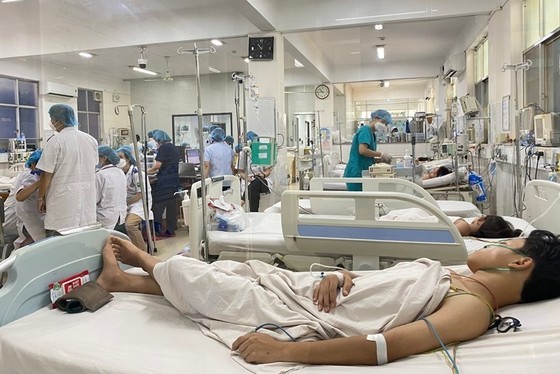 Many dengue patients are being treated in hospitals
Many dengue patients are being treated in hospitals
Notably, in many provinces and cities, the number of dengue cases continues to increase rapidly because the rainy season is a favorable environment condition for mosquitoes to breed. The number of cases is forecast to continue to rise further, with more severe cases to be hospitalized. Dengue is a mosquito-borne disease common in Southeast Asia that causes flu-like symptoms and no vaccine is available.
Through the Ministry of Health’s supervision, most dengue cases are living in the southern provinces with the number of cases accounting for 82 percent of the country, followed by the Central region with 14 percent of cases, the rest are in other areas. The main virus types are D1 and D2.
Faced with the complicated development of the dengue epidemic, in an effort to reduce the risk of serious complications, the Ministry of Health recommends that dengue patients need go to the hospital immediately when they feel uncomfortable even though their fever has gone down, or when they are unable to eat or drink, or they vomit a lot and have abdominal pain. Worse, they have cold, wet hands and feet; fatigue, restlessness or their nose, mouth, vaginal bleed or they have shortness of breath.
According to Dr. Nguyen Trong Khoa, Deputy Director of the Department of Medical Examination and Treatment, to improve the quality of treatment and reduce mortality, people with dengue should rest in beds, drink enough water, and take paracetamol and apply warm compresses.
Above all, people with dengue should not take aspirin, or other non-steroidal anti-inflammatory drugs, and if they have taken these drugs, they should go to see a doctor.
The Center for Disease Control of Ho Chi Minh City (HCDC) yesterday said that by the end of July 21, Ho Chi Minh City recorded 32,011 people with dengue, an increase of 293.8 percent over the same period in 2021 with 502 severe dengue cases.
























